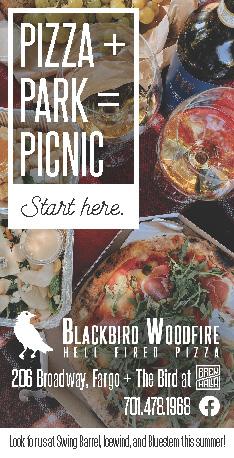Culture | October 10th, 2024
By Michael M. Miller
On October 11 and 12, Dr. Ann Braaten and I are presenting at the Regina and District Chapter of the American Historical Society of Germans from Russia in Lincoln, Nebraska. Ann will speak on Friday, October 11 at 6:30 p.m. Her talk will be titled,“Traditional Textiles and Clothing of the Germans from Russia Immigrants.” And I will speak on Saturday, October 12 at 7 p.m., discussing “The Genealogical, Historical & Cultural Information Available from the Germans from Russia Heritage Collection.”
The Fall 1978 issue of Prairies Magazine, pages 10-18, featured an article, “Grandfather with 93 Grandchildren Says It’s Good Thing He Likes Kids!” Prairies Magazine was published by the Ashley Tribune. It is available online at the South Dakota Germans from Russia Center, Northern State University, Aberdeen, South Dakota. Original copies of Prairies (1975-1986) are available at the GRHC Archives.
Joseph Vetter lived on his farm east of Linton, North Dakota. Neighbors and family often referred to him as the “Patriarch.” Joseph was 80 in 1978, when he shared much of his family history. He lived with his son, Ben and family.
Joseph was born in 1899. Joseph’s parents were Johannes and Anna Marie (Schmaltz) Vetter. They immigrated from South Russia and were married at Fort Yates, North Dakota, on the Standing Rock Indian Reservation. Johannes Vetter was born in Selz. Anna Marie Schmaltz was born in Neu Kandel. Both villages were part of the Kutschurgan District, today near Odessa, Ukraine.
Joseph’s sister, Magdalena (Vetter) Gross (1902-2003), was mother to well-known German-Russian folklorist, Brother Placid Gross, Assumption Abbey, Richardton, North Dakota, and native of Napoleon, North Dakota. Joseph’s grandfather, Valentine, was born in 1840 and was the first generation or the first owner of the Vetter homestead. Johannes Vetter, father of Joseph, was the second owner of the land. Today the sixth generation owns this land which is called “Vetterville.”
“My grandfather was born in 1840,” Joseph shares. “We were very close and he often told about his way of life, both in South Russia and also in the Dakotas when he came here as an immigrant with his father. As a child, we used to seed our grain by hand, just like my grandfather did when he was a young man. We dragged it with oxen, and used sickles to cut it.”
Joseph also remembers making the family’s own stove. “It was called ‘bak offa‘ (backoven, backofen). We made the oven out of blocks, a mixture of clay and sand. The blocks were brick size. But the backoven, was used only in the summers, in the winters we used a cast iron stove, and of course, dried cow chips for fuel. As a boy, I remember gathering cow chips. We had to collect it before rainy weather and it was stored in the sheds.”
Vetter was also familiar with the production of mischt, that old-time German-Russian formula for survival during the cold winters of the late 1890s and early 1900s. “We hauled out the manure from the barns in the winters, about 20 inches deep. Then we tamped it down, cut it with spades, and then set it out to dry. Then we would bed the cows down with straw in the barn. The straw would be part of the manure when we later hauled it out.”
Joseph Vetter married Veronica Wangler on October 17, 1921. She wore a dark blue wedding gown. Joseph met Veronica when she was performing in a play. She was a good actress and singer and this pleased Joseph very much. He asked her to marry him. She replied, “Why not. You are an organist and I like to sing. So I think we could get along nicely.”
The couple had 13 children. “We always had enough food. We didn’t have to worry in the 1930s. Those German-Russian women could prepare food for almost everyone out of barely nothing. But we were lucky. Our children were young. We didn’t have to hire out to other people, as was the case with many families with older children.”
Vetter shared, “I was what you call a mixed farmer. I had chickens, geese, ducks, cattle, sheep, pigs and dairy cows. My father even raised peacocks. We planted wheat, barley, oats and always raised a lot of potatoes. What I liked is bread. They’d buy 100 pound bags of flour. A typical-sized family would buy 1,000 pounds of flour in the fall to get them through the winter. But we’d buy 2,000 pounds. We usually had our flour ground at Temvik, Burnstad, or Kulm.”
“We were fortunate,” Joseph commented about the depression years. “When the depression came, we had no debts, and so we could pull through it. In the fall, we’d butcher two pigs to make head cheese. Then before Christmas, we’d butcher about four more pigs, Also, we butchered beef before Christmas. We dug the beef into the grain. Grain stays cold. The hams were saved for summer. They were cured in brine, salted and smoked. The hams were kept in the smokehouse and granaries. Even the heat couldn’t spoil the hams. Some of the other food was kept in wells. It was cool down there. That was our refrigerator.”
The Vetter family had long been milkers. “My grandmother milked until she was 75 years old. She milked two cows by hand. When it was cold, she milked inside the barn.” Joseph milked until he was 69. When he had a heart attack, he quit. “One of my sons used milk about three cups full. He’d take it inside the house, drink it, and then go down under the table to snooze.”
The Vetter clan was interested in politics. “My folks voted for Woodrow Wilson the first time he ran for President. When Hoover was President, everyone got tired of him. Wheat went down to 25 cents per bushel. The government said: ‘Food wins the peace.’ Everyone planted, and so naturally there was a surplus. It’s the same today. Over-planting causes prices to stay low.”
For more information about donating family histories and photographs, or how to financially support the GRHC, contact Jeremy Kopp, at jeremy.kopp@ndsu.edu or 701-231-6596; mail to: NDSU Libraries, Dept. 2080, PO Box 6050, Fargo, N.D. 58108-6050; or go to www.ndsu.edu/grhc. You may also contact me directly at michael.miller@ndsu.edu or 701-231-8416.
October column for North Dakota and South Dakota weekly newspapers.
May 12th 2025
May 12th 2025
July 3rd 2025
May 19th 2025
May 12th 2025
__293px-wide.jpg)


__293px-wide.jpg)
__293px-wide.jpg)
